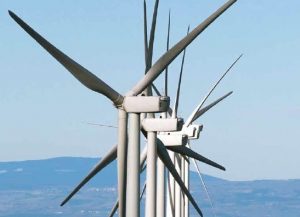The Canadian Wind Energy Association (CanWEA) recently urged the Ontario PC Party to reassess its energy policy platform, and to acknowledge that affordable energy for Ontario should include wind energy—a clean, renewable and cost-competitive source of electricity supply.
“Independent analyses by the energy consulting firm Power Advisory LLC show that wind energy was responsible for only 5 percent of the increase in electricity bills between 2009 and 2012. The bulk of rising electricity prices comes from expensive upgrades to decades-old power plants and transmission systems,” said CanWEA President Robert Hornung. “The PC Party is mistaken when claiming renewable sources like wind energy are the key driver of rising electricity bills.”
Hornung added that the PC Party is confusing facts and logic by declaring wind energy is subsidized. “Wind energy can provide electricity more cheaply than new nuclear power and is cost-competitive with new hydro developments,” he says. “Wind energy developers absorb almost all of the upfront costs in developing their projects, which means no front-end or long-term risks to taxpayers and ratepayers. New wind-driven electricity is being secured through long-term, pre-set contracts that contribute to price certainty and to keeping Ontario electricity rates stable and competitive across North America.”
Wind energy projects continue to see falling costs as new turbine technology boosts output, and economies of scale reduce production and supply costs. Requiring no fuel costs to maintain the flow of electricity, wind energy is not subject to variable market pricing for fuel supplies bought outside Ontario.
Wind energy companies have spent over $5 billion since 2009 to develop Ontario’s wind energy industry. Every megawatt of new wind energy represents an investment of approximately $2 million; a large portion of which is spent in the local community. Largely through these efforts, wind energy today has supported new manufacturing facilities and new jobs for graduates—and now meets over 3 percent of the province’s electricity demand, doubling over the past four years to 5.2 terawatt hours, about what 550,000 average homes use each year.
Any energy platform should be more in step with how modern electricity systems are evolving around the world, Mr. Hornung adds. “Progressive governments are seeing how wind energy reduces carbon emissions, improve grid reliability, and leads to more predictable and stable electricity prices.”

























